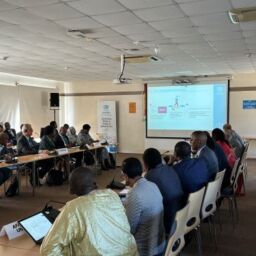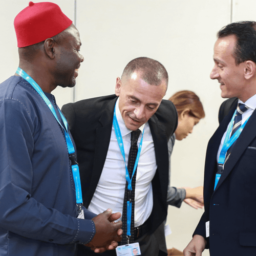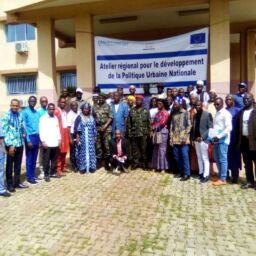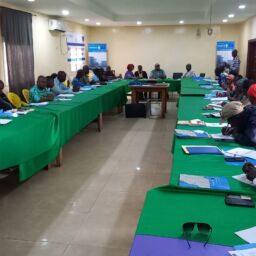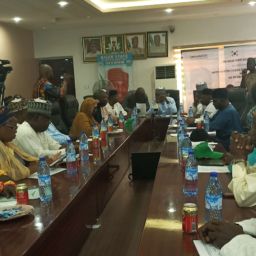Elaborating Guinea’s National Urban Policy
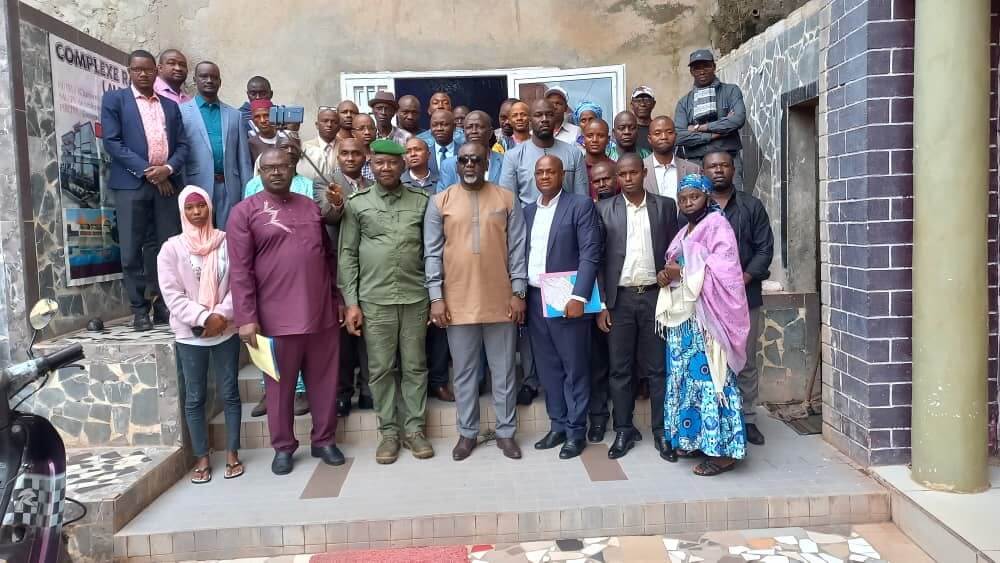
August 13th – 2022 in Labé, Guinea
On August 13th, 2022 in Labé, Guinea, 40 participants from administrative and local authorities, public and private sector, civil society, traditional authorities, and professional orders, attended the regional consultation workshop for the elaboration of Guinea’s National Urban Policy (NUP). As part of the SANITA[1] project funded by the European Union, this workshop is one of the seven regional workshops scheduled from 29 July to 20 August 2022. The objective of the workshops is to collect local development issues and priorities in a participatory approach, to be included in the National Urban Policy of Guinea.
After the welcoming note from Mr. Younoussa Baldé, Municipal Advisor representing the Mayor of Labé council, Mr. Karamoko Bela Diallo, the Regional Inspector of Urbanism, Housing and Land Management of the region, presented the context and objectives of the workshop. The governor of the administrative region of Labé, Colonel Robert Soumah, followed, commencing the activities by urging participants to get actively involved to identify development priorities and prepare guiding initiatives to promote sustainable urban development in the region.
To ensure an inclusive, participatory and outcome-oriented approach, the session was divided into two main parts: a plenary session and a group work session. The first presentation summarized the diagnosis of the urban sector that was carried out in 2020. It demonstrated to the participants the current state of urbanization in Guinea, its stakes and challenges, as well as the proposed initiatives for an improved urban and peri-urban environment. It also raised awareness among participants, actors and stakeholders on the importance of the urban development issues for the country/the region. The second presentation introduced the concept of national urban policy, elucidating to the participants the content and process of developing a NUP as well as the actors and their role in its development and implementation.
The focus groups session was based on two main exercises. The first exercise explored the links between the urban diagnosis and national urban policy, focusing on the recommendations from the Diagnosis Note. The second exercise focused on the regional priorities of the National Urban Policy, where the various groups deliberated and presented local experiences, views, proposed priorities for inclusion as the NUP continues to be formulated.
Some of the key priorities that emerged from the workshop in Labé include:
- Reorganizing the urban sector for more inclusive and sustainable processes
- Building capacity of local actors in the urban development space
- Implementing decentralization for improved territorial development
These will be incorporated in the regional report to be discussed during a national workshop in Conakry, Guinea. The workshop ended with a synthesis of the exchanges on the National Urban Policy and the appropriation of the process by the participants.
[1] The Urban Development and Sanitation Programme in Guinea (SANITA), is a programme funded by the European Union, with National Urban Policy being one of the five result areas of the programme.


